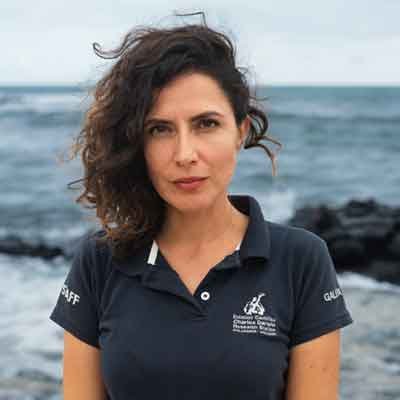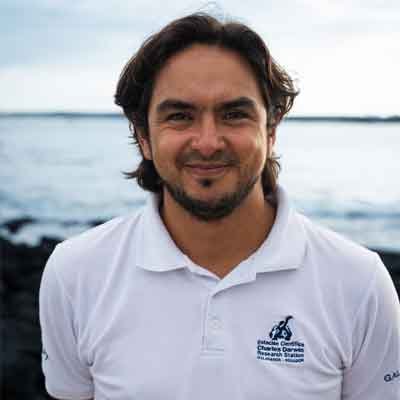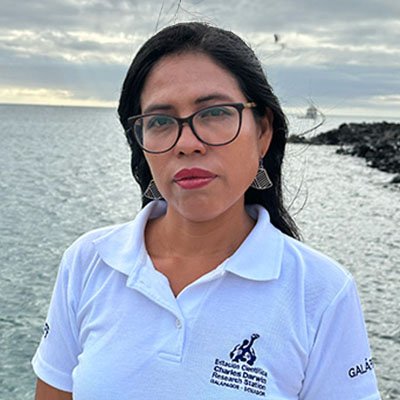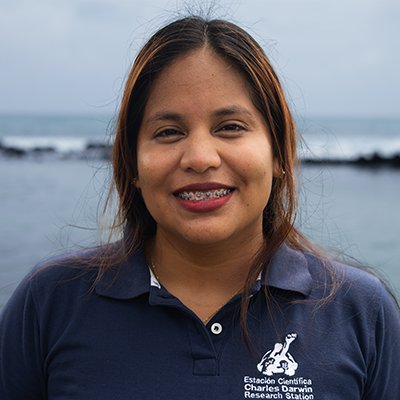At the Charles Darwin Foundation, we believe that sustainable conservation depends on the involvement of the local community. Our goal is to inspire future generations of local conservation leaders, and embed conservation and sustainable development in the local culture.
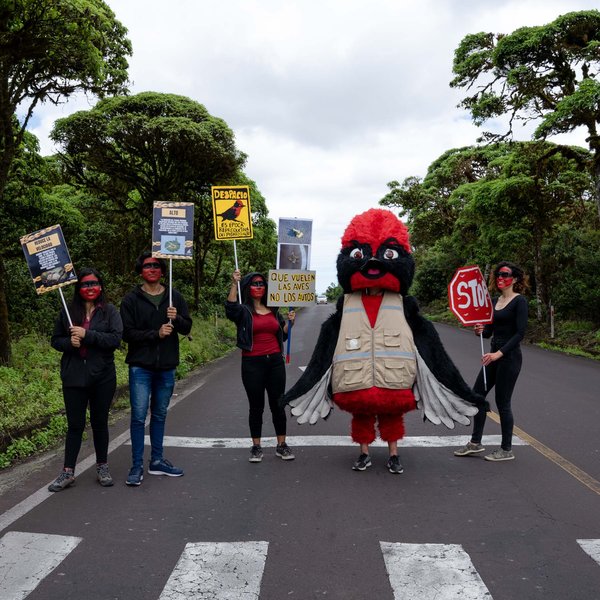
Our team
Fernanda Loayza
Environmental Education and Community Outreach Program Coordinator
David Guijarro
Education and Community Program Assistant
Katty Coquinche
Environmental Educator - San Cristóbal Island
Joselyn Grijalva
Environmental Educator - Isabela Island
Donors
Anonymous Donor
COmON Foundation
Ecoventura
Johnsonwax del Ecuador S.A.
Schmidt Ocean Institute
Roberto Ochoa
Galapagos Travel Center
Oceans Finance Company
Educational Resources
What We Do
The Charles Darwin Foundation (CDF) was the first organization in Galapagos to launch a formal community engagement and environmental education program. We actively tailor our environmental education and community outreach initiatives to support the growth of young Galapagueños, guiding them from adolescence into adulthood. We are confident that by imparting scientific knowledge and offering firsthand learning experiences, we can nurture a mindset and values that respect and protect the natural world. Through these efforts, we aim to foster the conservation and sustainable development of both the Galapagos ecosystems and the local community.
We do this by incorporating an integrative and comprehensive education and community outreach program (ECO Program) that promotes a “science-knowledge-and-practice” approach comprising four distinct yet interconnected components: Clubs; Science and Community Encounters; Experiential Science; and Scholarships.
Clubs
Our Clubs are a non-formal and youth-led environmental education program that empowers young people from all levels of society to become leaders in conservation. Our belief is that by becoming agents of change, young people can positively influence other social groups, and contribute to the conservation and sustainable development of the Galapagos Islands. The program has three Clubs:
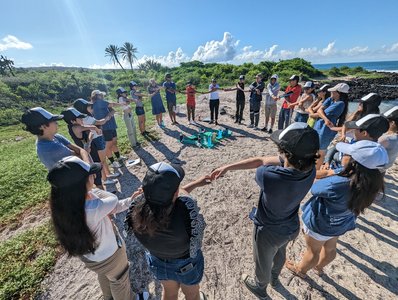
A summer club designed for 13 to 15 year-olds that provides them a unique opportunity to gain experience about the natural world of the Galapagos Islands through experiential learning, science, recreation, and reconnection with the natural environment.
A year-round club aimed at 14 to 18 year-olds. It provides them with opportunities to learn about conservation issues, foster their curiosity, develop leadership skills, and take action to protect the Galapagos Islands. The club is currently active on Santa Cruz and Isabela islands.
A leadership development program for young adults, 18 years and older, who are interested in pursuing careers through which they can flourish as young professionals and become positive agents of change. The program is designed to help young people develop their intra- and inter-personal skills, emotional intelligence, self-awareness, career guidance, and leadership.
Experiential Learning
Our Experiential Science component invites curiosity and love for nature through experience in the field, alongside our scientists and educators. Designed for both young and old, the program comprises three projects:
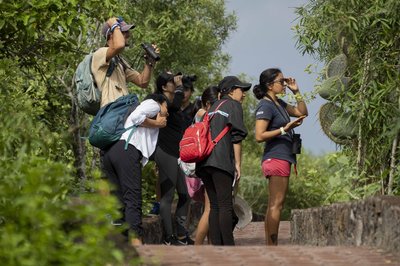
Through our experiential science component, we seek to provide youth with various hands-on activities related to scientific research projects conducted at the CDF, as well as key topics such as evolution, food chains, and genetics. Such activities complement the local school curriculum, with a view to bringing science closer to the younger generations at a critical time for learning. Our experiential science portfolio can also be tailored to specialized audiences such as teachers and other adult groups.
We believe that participation is key to learning, which is why we create opportunities for local community groups to participate in CDF’s research projects to help in the production of scientific knowledge. Our tri-annual bird count is one such example of a participative science activity involving the local community to take part in global bird censuses: Global Big Day, October Big Day, and the Christmas Bird Count.
This project was designed exclusively for the needs of the local community of Isabela Island in the context of Ecuador’s Programa de Participación Estudiantil (PPE). The PPE is a free educational program (part of the public-school curriculum) that seeks to promote and recognize the innovative, reflective, and expressive abilities of students. Our goal is to support the PPE by raising environmental awareness among local students through hands-on activities linked to CDF research projects, as well as local sustainable agricultural practices, coastal clean-up activities, art, and reconnection with nature.
Science and Community Encounters
With this component, our educators seek to build bridges, and share our knowledge and resources with the people of Galapagos. We do this through the following key approaches, as well as by providing accessible educational resources and events.
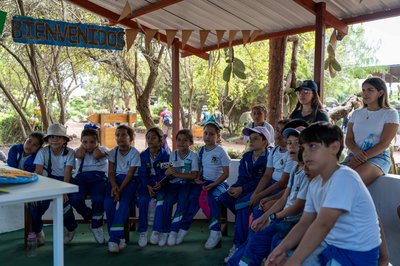
The Charles Darwin Research Station is home to one of two libraries on Santa Cruz Island. There are no libraries on Floreana or Isabela islands. Through our traveling libraries, we seek to bring books closer to communities that do not have easy access to such basic literary resources, in particular communities in remote areas of Santa Cruz, as well as Floreana and Isabela. The project today reaches five schools across three islands.
As stewards of the Galapagos Islands' most extensive Natural History Collections, it's our responsibility to share this invaluable resource with our local community. In 2023, we initiated a program to take our collections directly to schools through engaging educational activities. Our aim is to ignite curiosity about science, and foster a deeper understanding of the conservation of their unique home.
An especially important educational component is the broad range of scientific talks and activities CDF facilitates throughout the year. Every CDF scientist, as well as our more than 100 annual visiting scientists, share their latest research, expeditions, and findings through lectures and local workshops with local stakeholders across all demographics.
Our annual Open House sees members of the Santa Cruz community explore the world of science and conservation at the Charles Darwin Research Station. Here community members get a chance to learn about our projects, the key conservation issues we are tackling, as well as meet our scientists and see how they can contribute to a sustainable future for the islands. In 2023, our Open House welcomed eight out of the 12 schools of Santa Cruz Island and received more than 1,100 visitors.
Scholarships
The lack of universities in the Galapagos Islands, and the high costs of studying on the mainland or abroad, make our scholarship program essential for the sustainability of the islands. In order to bridge this education gap, CDF has been offering scholarships to Galapagos’ youth since the 1970s. Many have since gone into senior positions in the Galapagos National Park, as well as other local institutions and NGOs.
Program Objectives:
- Increase environmental literacy levels of participants by at least 10% after completing a project.
- Reach 6,000 students on the four inhabited islands of the Galapagos archipelago by 2024.
- Modify and expand the four components of the ECO Program (Clubs, Experiential Learning, Science & Community Encounters, and Scholarships) to create a more integrated approach to education on Santa Cruz, Isabela, and San Cristobal.
- Increase the number and variety of scholarships offered each year.
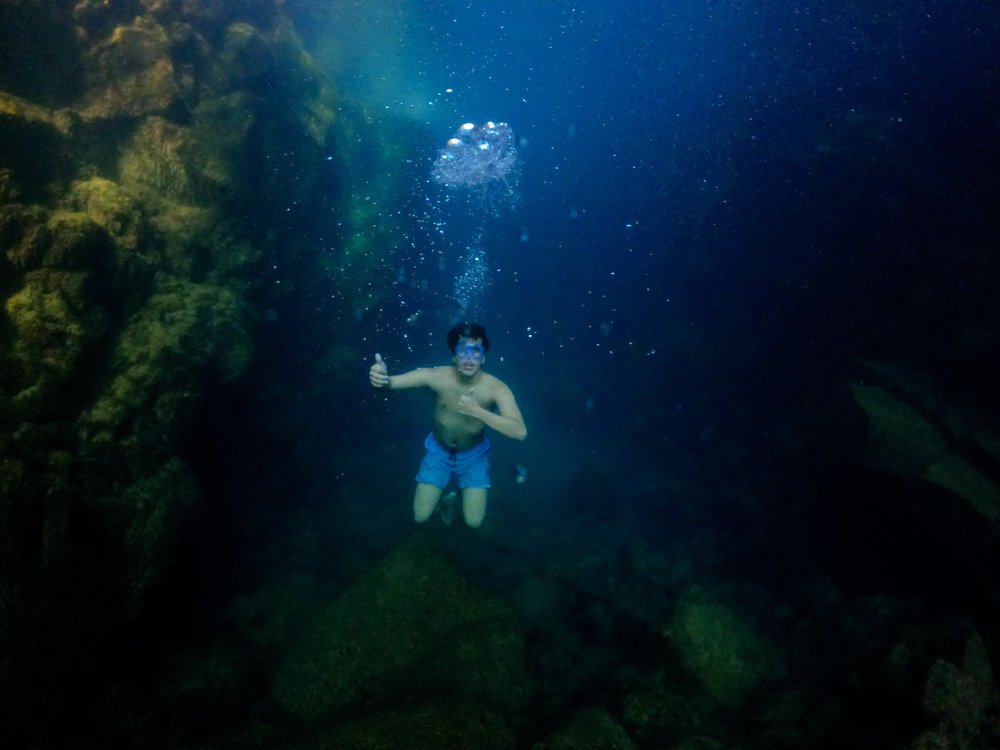
Why It Matters
Connecting local communities with nature nurtures future custodians of the Galapagos Islands. In this way, we empower them to take care of their home and make a positive impact on nature. The more people care, the better the outlook for our planet.
Furthermore, not everyone has easy access to education in the Galapagos. Our educational program helps level the playing field by offering scholarships and vital learning resources, with a special emphasis on equal opportunity.
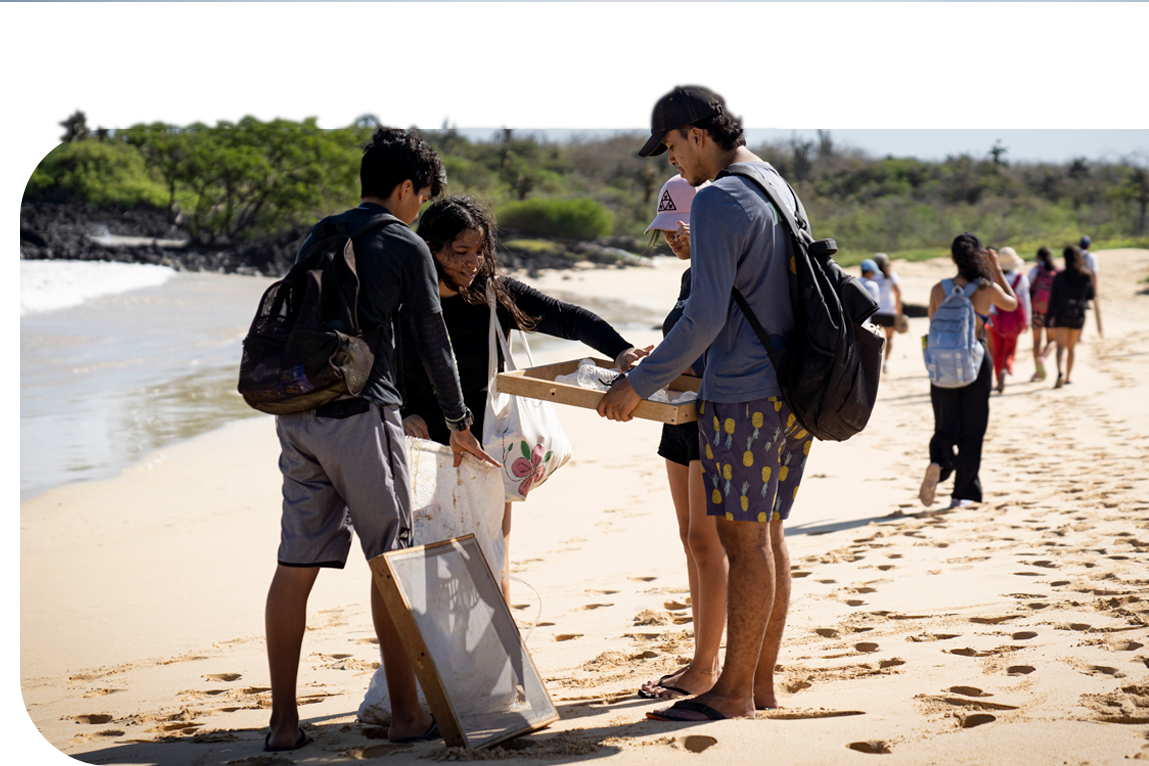
Our IMpact
Embedding conservation and sustainable development in the local culture:
Bringing books to remote communities
Libraries are one of the pillars of education and professional development. Considering the scarcity of public libraries in Galapagos, in 2019, CDF launched its traveling libraries, which aim to bring books to communities across the archipelago. In 2023, our traveling libraries continued their journey from Floreana, to the highlands of Santa Cruz and Isabela. We also have a traveling library at the Galapagos Specialized School, with resources aimed at children and adolescents with special needs and their teachers.
Supporting the next generation of conservation leaders
More than 400 Galapagos students have benefited from the CDF scholarship program and have since become professionals who support the conservation of the Galapagos. Many of them have held, or currently hold, important positions in various key environmental institutions in the Galapagos, such as the Galapagos National Park Directorate, Galapagos Governing Council, Conservation International, WWF, and our Research Station.
Inspiring and igniting curiosity through our Science Clubs
Science Club has grown into a thriving community of young and curious youth looking to learn about Galapagos, and how science helps to protect it. Over the last three years the Club has trained more than 150 young people from diverse backgrounds on Santa Cruz Island.
We have also, from 2022, incorporated the "Vacation Club" with 32 participants and the Leaders Club with 11 young people, 9 of whom are graduates of the Science Club, who have actively participated in the design and implementation of activities with the younger ones. Six of the 11 leaders have gone on to become volunteers within our Environmental Education and Community Outreach Program.
Supporting Public Schools through the Experiential Science Portfolio
The "Experiential Science Portfolio" is linked to one of the most important public-private projects in the province in terms of formal education, in which we have actively participated: the "Contextualization of the Curriculum with a Focus on Sustainability for the Galapagos Islands". This curriculum has been built in the territory in order to align the essential themes of the school curriculum with the environment that surrounds the students, and addressing the islands’ needs and problems.
In addition to providing support through scientific and technical advice for the construction of the curriculum, through the "Experiential Science Portfolio" we have implemented activities that have strengthened and reinforced essential themes through experiential and place-based learning, creating opportunities for contact and connection with nature, and harmonious and organic learning processes.
Why You Should Support Us
Conservation is nothing if it is not people-led and sustainable over the long term. By supporting our ECO Program, you are helping us develop the next generation of environmental stewards, and in doing so building a culture of conservation for the future of Galapagos and its people.
Here are some specific examples of how your donation could be used to help:
- Scale our educational and experiential learning activities so we can reach more students, and increase environmental literacy across all four inhabited islands.
- Provide educational resources, scholarships, and opportunities that really improve the lives of the Galapagueño community, while respecting the environment.
- Launch our Science Club in San Cristobal Island, raising awareness of the importance of science for conservation.
- Bring our Natural History Collections to schools across all four habited islands, sharing the treasure that is their homeland with more students.
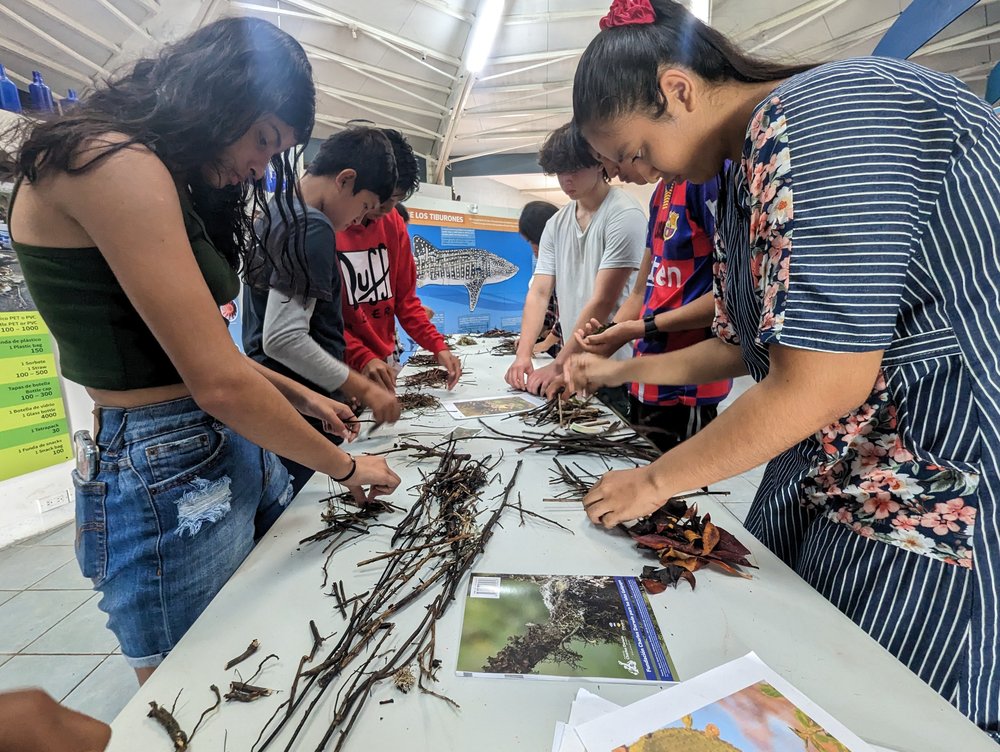
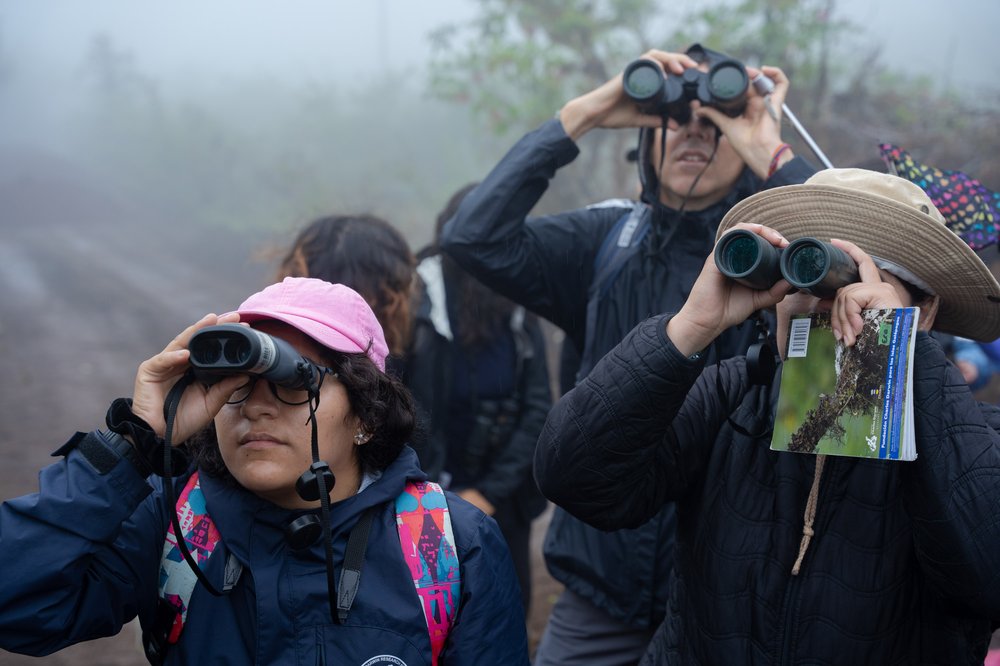
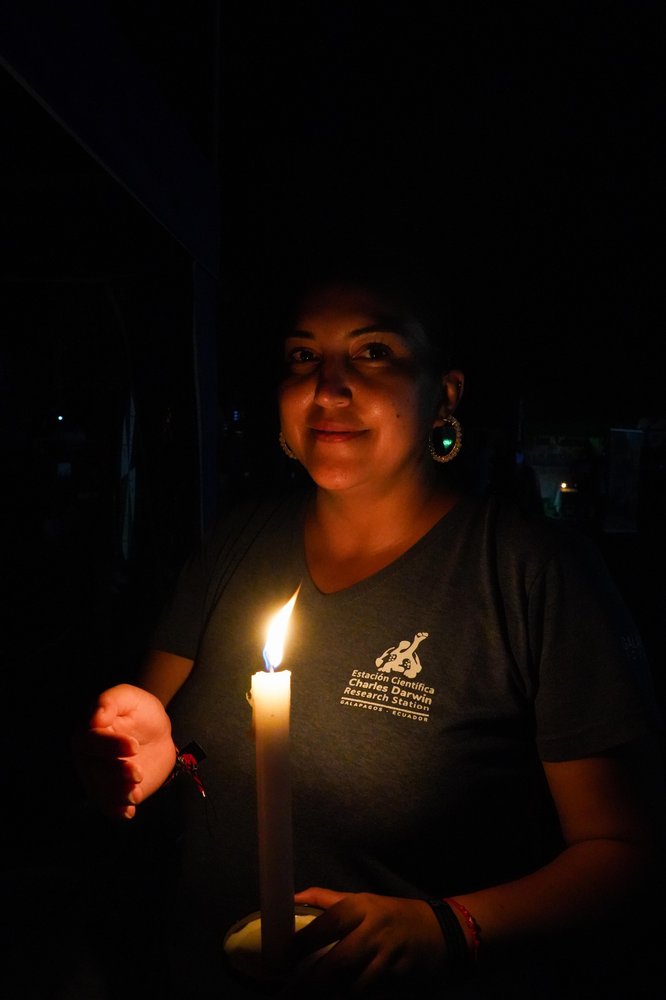
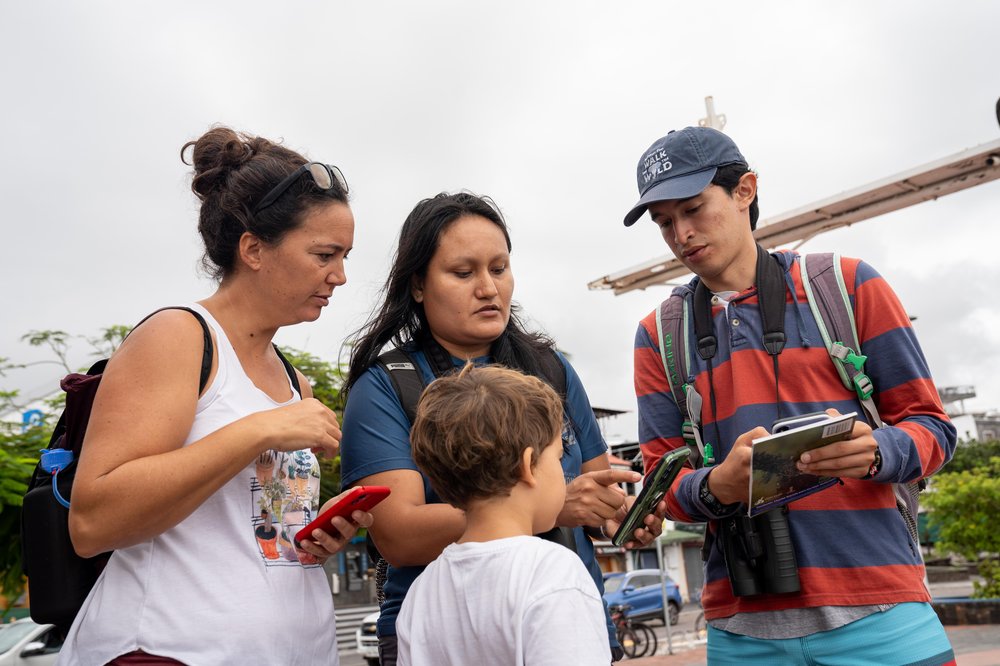
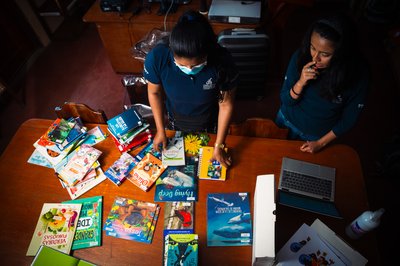
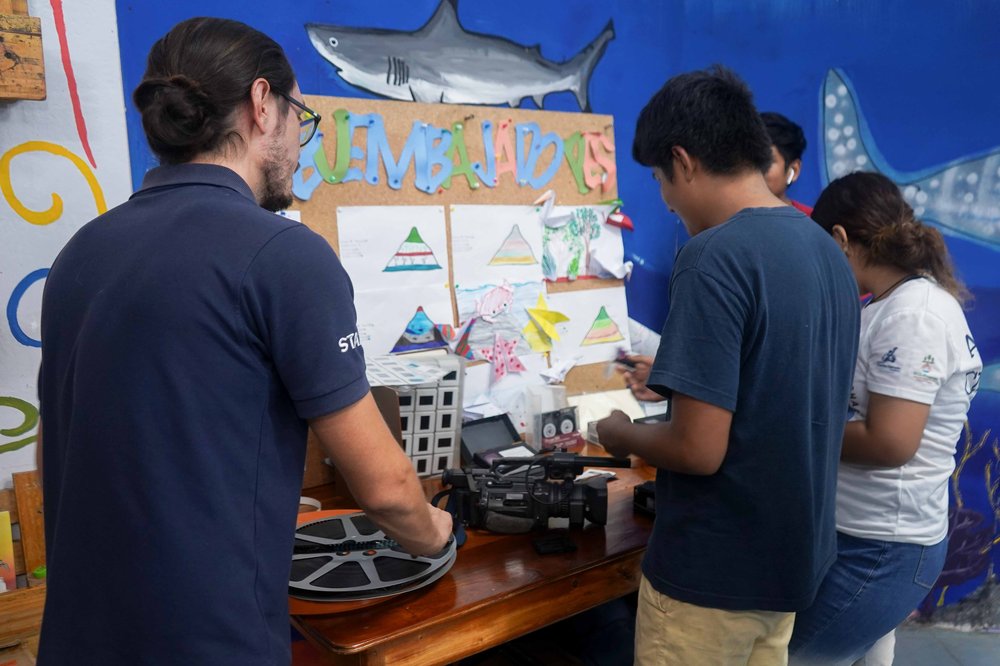
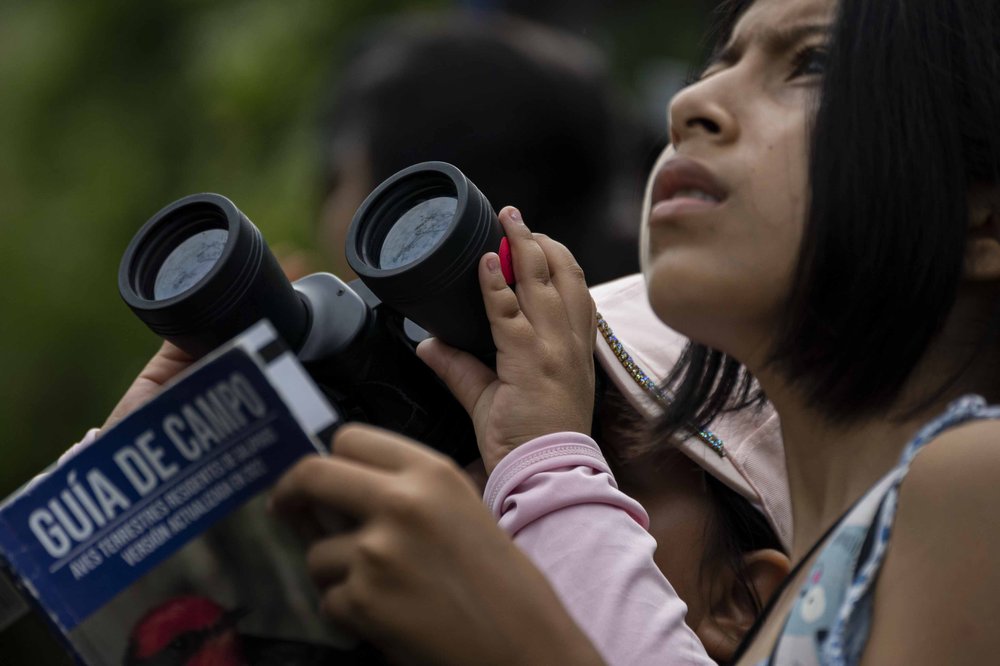
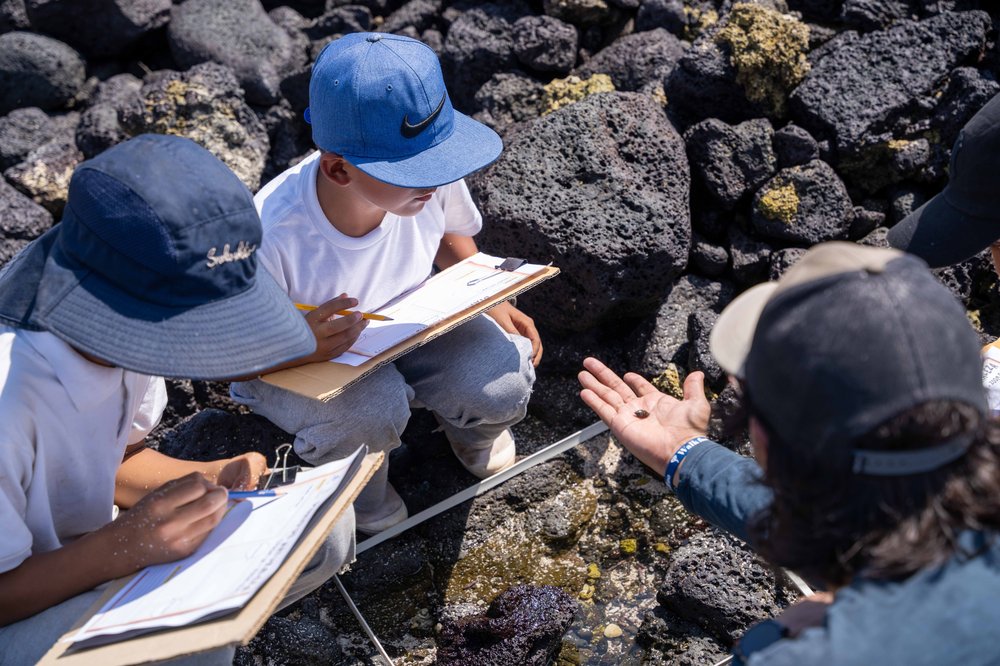
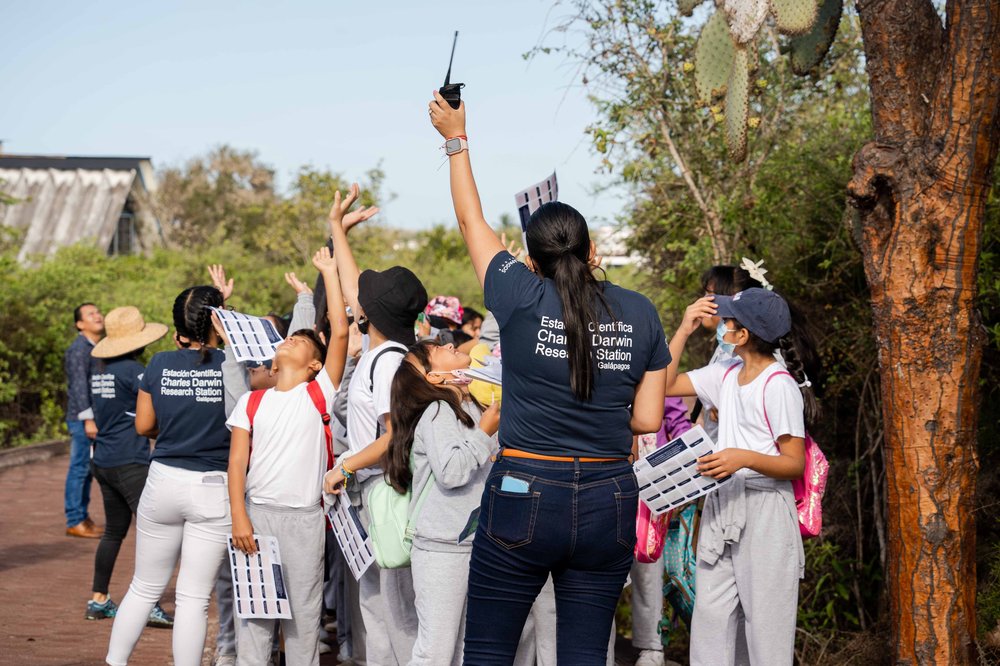

Protect Galapagos, Impact the World
The impact you make on this small ecosystem of enormous biodiversity is part of a larger footprint you are leaving for the world's future. Join us on our mission to safeguard one of our planet’s most important natural treasures through science and conservation action by making a donation today. Thank you for making an impact with us.




